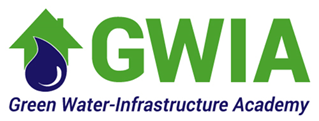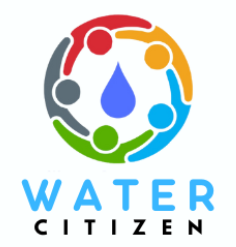|
Role |
Speaker |
Video |
|
Keynote – April 15 |
Mustafa Ali |
|
|
Keynote – April 16 |
Tom Kennedy |
|
|
Luncheon Speaker April 16 |
Melissa D. Ho |
|
|
Panel 1 Water Justice and COVID-19 |
Letitia Carpenter, US Water Alliance |
|
|
Sydney Collins, Buffalo Sewer Authority |
||
|
Maureen Taylor, Michigan Welfare Rights Organization |
||
|
Panel 2 Social Hydrology: A Paradigm Shift Toward More Resilient Water Resources Management |
Dr. Murugesu Sivapalan, University of Illinois at Urbana-Champaign |
video |
|
Dr. Vikram Mehta - Center for Research on the Changing Earth System (CRCES), Catonsville, MD |
video | |
|
Dr. William Shuster - Wayne State University, Detroit, MI |
video | |
|
Panel 3 Innovations in water resource management |
Dr. Emily Berglund, North Carolina State University |
video |
|
Dr. Peter Grevatt, The Water Research Foundation |
video | |
|
D. Jon Freedman, SUEZ’s Water Technologies & Solutions |
video | |
|
Panel 4 Green water- infrastructure in circular cities |
Anna Shipp, Executive Director, The Sustainable Business Network of Greater Philadelphia |
video |
|
Dr. Cecilia Tortajada, University of Glasgow, U.K |
video | |
|
Karen Firehock,Director and co-founder of the Green Infrastructure Center (GIC) |
video |
Sharon B. Megdal1, Crystal Tulley-Cordova2, Nikki Tulley3, Bidtah Becker4, Karletta Chief5
1Director, University of Arizona Water Resources Research Center; 2 Principal Hydrologist, Navajo Nation Department of Water Resources; 3Ph.D. student, University of Arizona Department of Environmental Science; 4 Associate Attorney, Navajo Tribal Utility Authority; 5 Associate Professor and Associate Extension Specialist, University of Arizona
2. Social equity in climate change adaptation programs: A statistical analysis of participation in the NYS Climate Smart Communities Program
3. Transforming changes in water management with systems thinking: A Decision framework for economic and conservation harmony
4. Human-centered selection of sustainable WASH solutions to challenges on water and sanitation access in underserved communities in the US and abroad
5. Incremental retreat: Leveraging checkerboard buyouts in flood prone neighborhoods
3. Educating water utility leaders on the need for, approaches to, and funding opportunities for water asset management – a human-centered design approach to virtual water education
4. Bridging the gap of water and land use
7. Assessing Priority Pollutant Polycyclic Aromatic Hydrocarbons and Metal Elements in the Downstream Tributaries of the Anacostia River in Washington DC
8. COVID-19 pandemic and water demand
https://www.awra.org/Members/Events_and_Education/Events/2021_Spring_NCR_Conference.aspx
Networking opportunities will be available using the Wonder Platform: Click here for the wonder video with networking instructions.
CONFERENCE DETAILS
Conference Details
Modern society since the industrial revolution has mainly adopted linear water production and consumption practices. Water is withdrawn from rivers, reservoirs, and aquifers for agricultural, industrial, and water supply purposes and then typically treated and disposed back into the streams. In recent years, due to high water demand resulting from population growth and consumerism, water resources professionals have been engaged in promoting water conservation and developing alternative water source technologies such as desalination and wastewater reuse. Even though such efforts have been tremendous, they still have a long way to go to achieve full success. Recent efforts have been focused on creating a more circular economy, which aims to produce more efficient resource systems (including water and wastewater), design out waste and pollution, retain products and materials currently in use, and regenerate natural systems. The transformative potential of circularity in the water sector is that water within a such a system is not specific to a single industry but instead considers the human dimension to be necessary for sustainable water resources (from food to the built environment).
Sudden shocks to the system can drive such transformative changes within the economic, social, political, and environmental arenas, as can more extensive disruptions. For example, the sudden events of September 11, 2001 sparked the water sector's attention on water security, while the more long-term impacts of climate change are perpetuating the need for a unified policy on water management. At present, another unexpected and sudden crisis, COVID-19, has exposed a diverse range of additional pre-existing community problems across the U.S. including environmental justice.
April 15 – Day 1
The major purpose of the first day of the conference is to focus on water research, education and management, in terms of the human dimension, which can no longer be ignored. Water management has to be conducted through a sustainable lens with nature-based solutions that are both inclusive and holistic. More than ever, we need cross-sectoral collaborations to promote the sustainability and health of our water resources and water infrastructure. As such, expert panels will be convened to discuss emerging water topics: socio-hydrology, environmental justice, and innovations in water resources research, management and policy.
April 16 – Day 2
The Day 2 topic relates to the use of green water-infrastructure in circular cities to complement the circular economy. Advances in small-scale and decentralized water and renewable energy technologies provide significant opportunities for integrated and resilient urban water management to cope with cybersecurity, climate change mitigation/adaptation and community level environmental justice issues. We’ll present and share ideas and experiences that advance innovative solutions, particularly in the arena of decentralized and green urban water-infrastructure. The idea behind implementing such infrastructure envisions a holistic water and energy management system that supports water, energy, and food security within the built urban environment. The agenda will include plenary sessions, concurrent research/technical paper sessions, and poster presentations.
Student Presentation Preparation Guide and Recording Instructions
Click here for the presentation preparation guide.
Click here for the presentation recording instructions via zoom.
Click here for the wonder video with networking instructions.
One Water Cities: Ideas and lessons learned from coast to coast.
Contact Us
Social Media:
E-mail:







